Faculty Research
The UT Health Science Center College of Pharmacy is ranked No. 13 Nationally in Research Funding from NIH with $17.6 million in total research dollars in 2023.
The researchers and scientists at the UT Health Science Center College of Pharmacy address critical healthcare challenges through drug discovery, preclinical and clinical development through drug utilization, outcome research, and clinical research targeted at the refinement of applied pharmacotherapy. Thus, the college possesses comprehensive expertise to address research questions throughout a drug's life cycle, from its early stages as a potential candidate to its clinical use in patient subpopulations.
College of Pharmacy Faculty Research Specialties
Therapeutic Targets and Molecular Mechanisms of Disease
Research in this area aims to identify and validate new drug targets (endogenous proteins) relevant to treating diseases such as cancer, neurological conditions, metabolic disorders and infectious diseases using biochemical and biological approaches.

Sarka Beranova-Giorgianni, PhD
Associate Professor
Department of Pharmaceutical Sciences
Francesco Giorgianni, PhD
Associate Professor
Department of Pharmaceutical Sciences
fgiorgia@uthsc.edu
The long-term research in the Beranova and Giorgianni laboratory focuses on the application of high-end biological mass spectrometry and bioinformatics technologies for qualitative and quantitative characterization of complex biological systems in health and disease. The laboratory houses a state-of-the-art high-resolution LC-MS/MS instrument (Waters Synapt G2-Si) and advanced bioinformatics tools. Our team is currently applying targeted and global-scale strategies to examination of the effects of oxidative stress on the molecular machinery in retinal pigment epithelium (RPE). The main goal of this research is to bring new mechanistic insights into RPE dysfunction in age-related macular degeneration (AMD), and to identify new targets to be exploited for development of therapeutic interventions to halt disease progression. Furthermore, we contribute expertise in biological mass spectrometry and proteomics to multidisciplinary collaborations with researchers at UTHSC.
Not Accepting Graduate Students
 Daniel Mohr Collier, PhD
Daniel Mohr Collier, PhD
Assistant Professor
Department of Pharmaceutical Sciences
daniel-collier@uthsc.edu
The Collier Lab focuses on studying the molecular physiology of Hypertension. Hypertension is defined as having blood pressure greater than 130/80. It is considered the top risk factor for cardiovascular disease and stroke, which are the leading causes of death in the United States. Hypertension is often linked to impaired vasodilation, which is a key contributor to its development. The endothelium, the cells that form the inner lining of arteries, regulates vasodilation through various ion channels and receptors present in the endothelial cells. The Collier Lab is researching the role of ion channels in vascular endothelium using state-of-the-art 4D microscopy, genetically encoded biosensors, and various biochemistry, molecular biology, electrophysiology, and vascular biology techniques. The primary goal of the lab's research is to provide new insights into therapeutic strategies to reduce the impact of hypertension on cardiovascular disease, stroke, and cognitive disorders.
Not Accepting Graduate Students
 Ted Cory, PharmD, PhD
Ted Cory, PharmD, PhD
Associate Professor
Department of Clinical Pharmacy and Translational Science
tcory1@uthsc.edu
The Cory laboratory aims to enhance the effectiveness of HIV treatment by investigating techniques to increase drug concentrations in areas where drug concentrations may be insufficient to stop HIV replication, including the brain, lymph nodes, and secondary lymphoid tissues. Macrophages, which exist in two dissimilar subsets, play an important role in HIV infection and interact with host cells in lymph nodes and secondary lymphoid tissue. The Cory lab aims to define the mechanisms by which intracellular antiretroviral concentrations are altered in macrophage subsets and its effect on viral replication and spread. They focus on developing strategies to modulate the expression and function of drug transporters on macrophages. The lab is also investigating ways to increase drug concentrations in the presence of drugs of abuse, such as nicotine and alcohol, which are commonly used in HIV+ individuals and associated with worsened outcomes.
Not Accepting Graduate Students
 Jarrod Fortwendel, PhD
Jarrod Fortwendel, PhD
Professor
Department of Clinical Pharmacy and Translational Science
jfortwen@uthsc.edu
Jarrod Fortwendel's laboratory is dedicated to studying host-pathogen interactions during invasive and chronic fungal diseases, molecular mechanisms of Aspergillus fumigatus pathogenic fitness, and mechanisms of triazole antifungal resistance in Aspergillus species.
Aspergillus fumigatus is a common cause of fungal infection in people with weakened immune systems. These invasive Aspergillus infections cost up to $1 billion annually in the US. Aspergillus can also cause chronic, non-invasive infections in non-immunosuppressed patients. Chronic Pulmonary Aspergillosis (CPA), an inflammatory disease, is a major but under-recognized disease that is diagnosed using new criteria. There are very few treatment options available for aspergilloses, and resistance to the triazole class of antifungals, which is the major class with anti-Aspergillus activity, is increasing. Despite over a decade of research into the emerging threat of triazole resistance in A. fumigatus, effective strategies for preventing or circumventing this phenomenon remain elusive.
Not Accepting Graduate Students
Maxwell Gyamfi, PhD
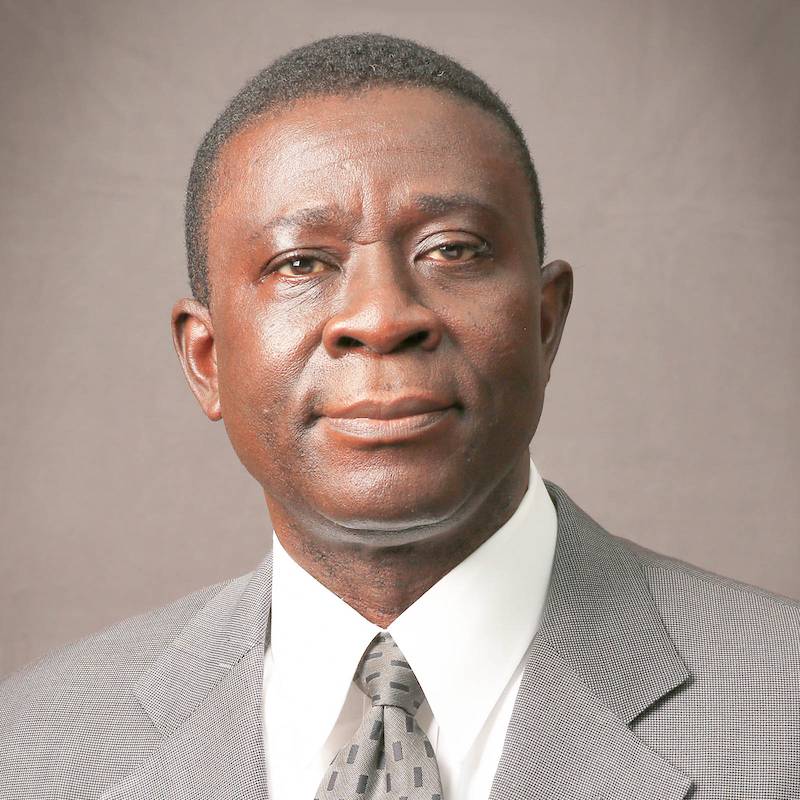 Maxwell Gyamfi, PhD
Maxwell Gyamfi, PhD
Assistant Professor
Department of Pharmaceutical Sciences
mgyamfi@uthsc.edu
The major goals Dr. Gyamfi’s research are 1) to define the broadly diverse in vivo functions of mouse and human xenobiotic nuclear receptor pregnane X receptor (PXR) genes, 2) to dissect the molecular mechanisms responsible for the sex and ethnic disparities in obesity, type 2 diabetes, nonalcoholic fatty liver disease (NAFLD), and alcoholic liver disease (ALD), and 3) to investigate the effect of environmental chemical exposure on high fat diet (HFD)-induced obesity and type 2 diabetes.
Not Accepting Graduate Students
Cameron Hole, PhD
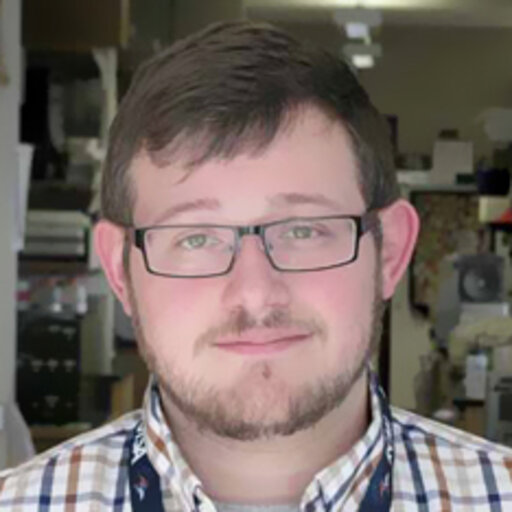 Cameron Hole, PhD
Cameron Hole, PhD
Assistant Professor
Department of Clinical Pharmacy and Translational Science
chole@uthsc.edu
Dr. Hole’s work primarily focuses on the optimistic fungal pathogen Cryptococcus neoformans. C. neoformans is the most common disseminated fungal pathogen in AIDS patients, with an estimated quarter million cases of cryptococcal meningitis each year resulting in ~200,000 deaths and remains the third most common invasive fungal infection in organ transplant recipients. Current antifungal therapy is hampered by toxicity and/or the inability of the host’s immune system to aid in the resolution of the disease; treatment is further limited by drug cost and availability in the resource-limited settings where this disease is rampant. Even with appropriate therapy, one-third of patients with cryptococcal meningitis will undergo mycologic and/or clinical failure. Patients who do recover can be left with profound neurological sequelae, highlighting the need for more effective diagnostics, therapies, and/or vaccines to combat cryptococcosis.
Accepting Graduate Students
Jianxiong Jiang, PhD
 Jianxiong Jiang, PhD
Jianxiong Jiang, PhD
Professor
Department of Pharmaceutical Sciences
jjiang18@uthsc.edu
Jiang Lab in Translational Neuroscience Website
Dr. Jianxiong Jiang’s lab investigates neuroinflammation, neuronal injury, and behavioral impairment associated with neurological insults including seizures, strokes, and brain tumors. The lab also works to develop novel anti-inflammatory therapies that confer neuroprotection and reduce brain injury-associated co-morbidities. The lab uses various technologies, such as high-throughput screening, chemical genetics, CRISPR/Cas9, RNAi, time-locked video EEG, unbiased stereology, and behavioral tests, aiming to bridge the gap between basic biomedical research discoveries and clinical innovations.
Accepting Graduate Students
 Colleen B. Jonsson, PhD
Colleen B. Jonsson, PhD
Professor
College of Medcine, Department of Microbiology, Immunology & Biochemistry
The research in Dr. Colleen B. Jonsson’s lab focuses on ecology, evolution, and immune responses of hantaviruses, particularly in their natural rodent reservoir that are endemic in the Interior Atlantic Forest of Paraguay. The lab is also involved in the discovery of antivirals for Venezuelan equine encephalitis virus (VEEV), Eastern equine encephalitis virus (EEEV), and Western equine encephalitis virus (WEEV). The lab collaborates with other institutions to optimize lead quinazolinone series for non-GLP studies, define scale-up synthesis of the lead drug substance, and conduct nonclinical virology studies for evaluation of safety, efficacy, mechanism of action, target specificity, and drug resistance monitoring plan.
Accepting Graduate Students
Santosh Kumar, PhD
 Santosh Kumar, PhD
Santosh Kumar, PhD
Professor
Department of Pharmaceutical Sciences
ksantosh@uthsc.edu
Dr. Santosh Kumar is a researcher who focuses on neuroHIV/neuroAIDS and its comorbidities. These include substance use disorders (SUD), neurological diseases, and coinfections. Although HIV is manageable, there is a rapid increase in complications related to neuroHIV-associated comorbidities, especially in aging populations. The high prevalence of neuroHIV/neuroAIDS is due to the viral reservoirs in brain cells and suboptimal therapeutic concentrations of antiretroviral drugs in the brain. This leads to persistent HIV replication in brain reservoirs, causing neuronal damage and HIV-associated neurocognitive disorders (HAND). Kumar's goal is to understand the mechanisms of HIV and its related comorbidities to develop a novel treatment strategy for HIV-associated comorbidities. He is also working on discovering biosignatures that can predict HIV-associated comorbidities and aid in disease prediction. His laboratory is utilizing synthetic lipids-based, extracellular vesicles (EVs), and EV-lipids based hybrid nanoparticles system along with intranasal delivery methods to develop drug delivery approaches to treat NeuroHIV, HAND, and HIV-associated neuronal diseases.
Not Accepting Graduate Students
Marie Dennis M Leo, PhD
 Marie Dennis M Leo, PhD
Marie Dennis M Leo, PhD
Assistant Professor
Department of Pharmaceutical Sciences
mleo@uthsc.edu
Dr. Leo's research is on signaling pathways controlling vascular ion channels expression and function in health and disease.
Accepting Graduate Students
Glen Edwin Palmer, PhD
 Glen Edwin Palmer, PhD
Glen Edwin Palmer, PhD
Associate Professor
Department of Clinical Pharmacy and Translational Science
gpalmer5@uthsc.edu
Dr. Glen Palmer's research aims to find new target proteins for developing more effective antifungal therapies. His lab is investigating new classes of antifungal agents targeting fungal vacuoles, fatty acid biosynthesis, and aromatic amino acid biosynthesis. They have developed high-throughput chemical screening assays, including a new type of target-based whole-cell screen, to identify compounds that target these cellular functions. This approach is expected to speed up the identification of pre-therapeutic leads with a defined mechanism of action. Dr. Palmer is optimistic about the potential of using yeast-based systems, which are amenable to high-throughput approaches, to find new pharmacotherapies that target human disease-related proteins. Fungal infections are a major health concern, and developing effective antifungal drugs is essential to reduce mortality rates.
Accepting Graduate Students
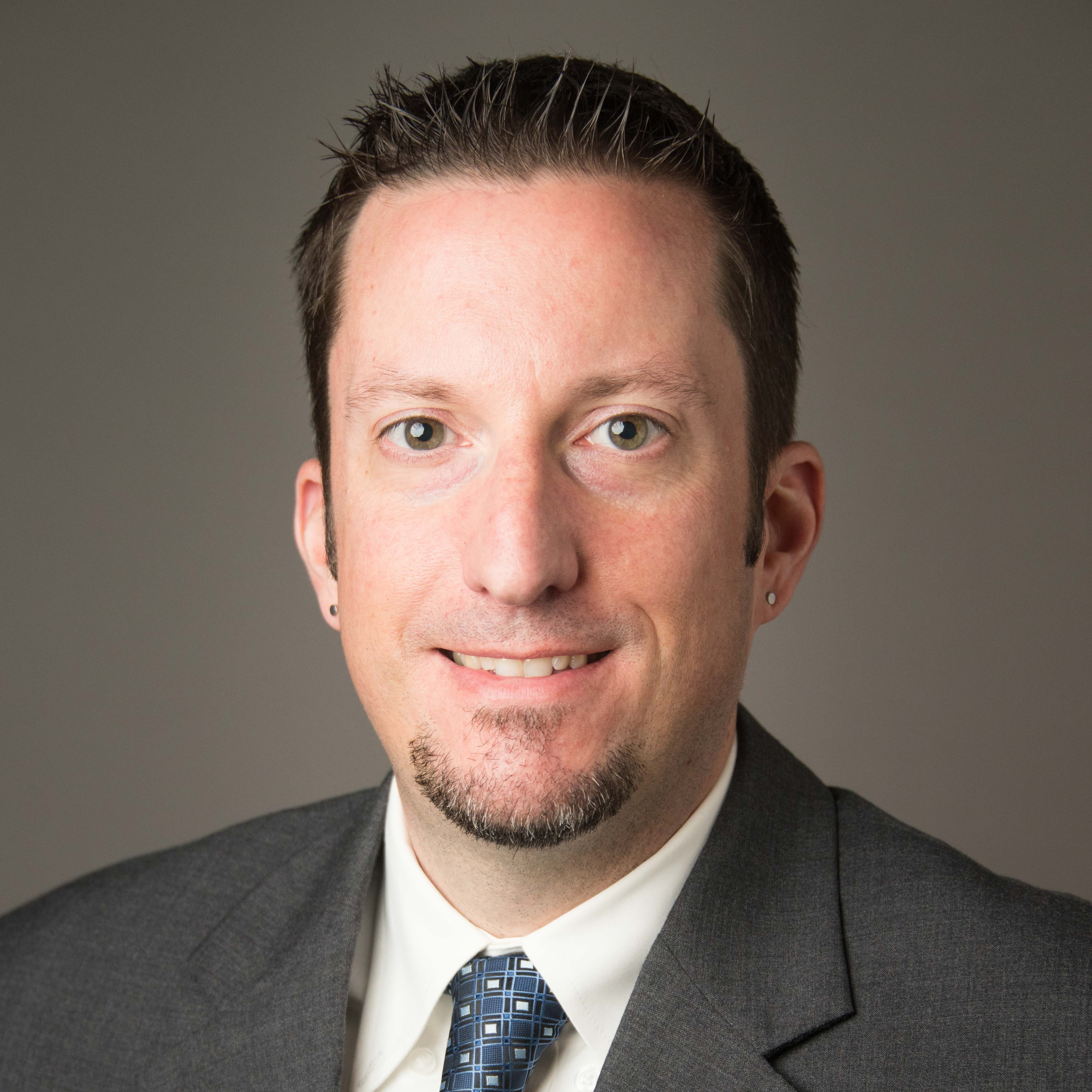 Brian M Peters, PhD
Brian M Peters, PhD
Professor
First Tennessee Endowed Chair of Excellence in Clinical Pharmacy
Department of Clinical Pharmacy & Translational Science
The Peters laboratory focuses on understanding how fungi sense and respond to their environment and how these inputs impact host-pathogen and microbe-microbe interactions. We employ a variety of molecular, genetic, immunologic, and omics techniques to unravel these questions with the long-term objective of developing novel treatment modalities to improve clinical outcomes of fungal disease. Candida albicans readily colonizes human mucosal surfaces, but as a common opportunistic pathogen in the female reproductive tract, it causes significant quality of life issues, including vaginal itching, burning, and pain. We are interested in exploring virulence mechanisms utilized by C. albicans to activate mucosal inflammation and identifying downstream host signaling events that drive symptomatic disease. Exploitation of both host and fungal factors may serve as novel treatment modalities to reduce disease symptoms or colonization. The lab is also readily interested in delineating mechanisms as to how fungi and bacteria “communicate” to exacerbate virulence and drive infectious synergism and identifying approaches to limit pathogenicity of coinfection.
Not Accepting Graduate Students
Udai Singh, PhD
 Udai Singh, PhD
Udai Singh, PhD
Professor
Department of Pharmaceutical Sciences
usingh1@uthsc.edu
Dr. Singh research interests are focused on 1) developing innovative therapeutic approaches to suppress autoimmune diseases by alternative medicine; 2) developing novel strategies to attenuate obesity and regulatory T cells (Tregs) expansion, and 3) developing innovative therapeutic approaches to suppress urinary bladder inflammation by chemokines.
Dr. Singh’s primary research interests include studying chemokines, autoimmune diseases, immunotherapy, and alternative medicine and investigating the causes and pathogenesis of human inflammatory bowel disease (IBD) and interstitial cystitis (IC). In addition, Dr. Singh is delving into the pathogenesis of obesity and its impact on T-cell homeostasis, macrophage polarization, and the differential expression of miRs in peripheral adipose tissue. His current emphasis is on employing regulatory T cells (Tregs) as therapeutics for diabetes, in both mice models and clinical patients.
Accepting Graduate Students
Bhupesh Singla, PhD
 Bhupesh Singla, PhD
Bhupesh Singla, PhD
Assistant Professor
Department of Pharmaceutical Sciences
bsingla@uthsc.edu
Research work in Dr. Singla’s lab focuses on identifying endogenous molecular factors and investigating the downstream signaling mechanisms that regulate lymphangiogenesis, lymphatic function, vascular cell phenotype, and their significance in developing various vascular pathologies. One area of research is investigating a potentially deleterious role of TSP1-CD47 signaling in the pathogenesis of cardiometabolic and occlusive vascular diseases. Another area of interest is defining the role of RSPO2-mediated signaling in the development of cardiovascular diseases. To address the key questions in cardiovascular biology, Dr. Singla’s lab utilizes a variety of innovative tools ranging from in vitro/ex-vivo cell-based assays, molecular biology techniques, various biochemical, imaging, functional, and cell biology assays to multiple genetically engineered mouse models and in vivo gene transfer.
Accepting Graduate Students
Drug Discovery and Development
Research in this area includes the design, synthesis, and biological evaluation of new chemical entity with potential use in treating diseases such as cancer, infections, disorders of the endocrine, cardiovascular, central, and peripheral nervous systems.
 Kirk Hevener, PharmD, PhD
Kirk Hevener, PharmD, PhD
Associate Professor
Department of Pharmaceutical Sciences
khevener@uthsc.edu
The Hevener laboratory is dedicated to validating and characterizing selective, narrow-spectrum antibacterial targets, as well as identifying early-stage chemical probes. The lab’s research is focused on using their strengths in protein biochemistry, structural biology, computer-aided drug design, and rational drug design to target the bacterial FAS II pathway and bacterial type IA topoisomerases. The lab has expertise in a variety of disciplines, including infectious diseases, pharmacy, biochemistry, chemical biology, computer-aided drug discovery, medicinal chemistry, molecular biology, and structural biology.
Accepting Graduate Students
Michio Kurosu, PhD
 Michio Kurosu, PhD
Michio Kurosu, PhD
Professor
Department of Pharmaceutical Sciences
mkurosu@uthsc.edu
Dr. Kurosu has a long-term interest in identifying new drug targets for bacterial infections and cancer chemotherapeutics. He has a broad background in organic chemistry / medicinal chemistry and protein chemistry, with special training and expertise in preclinical drug discovery (hit to lead). His research includes anticancer and antibacterial drug discoveries associated with Gram-negative bacteria, Mycobacterium spp., spore-forming bacteria (e.g., Clostridioides difficile), and solid cancers (e.g., pancreatic, breast, cervical, and ovarian cancers). As PIs on several NIH- and internally funded programs, he has studied essential enzymes for growth of Acinetobacter baumannii, Klebsiella pneumoniae, and Mycobacterium tuberculosis, and glycosyl transferases for drug discoveries of pancreatic and cervical cancers.
Accepting Graduate Students
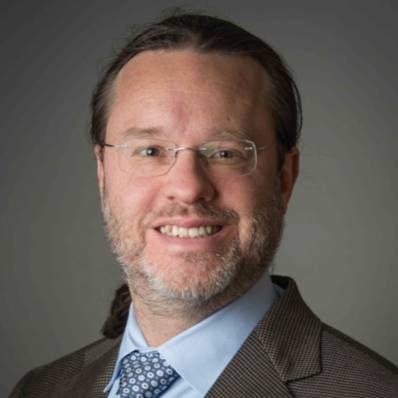 David N. Hayes, MD, MPH
David N. Hayes, MD, MPH
Professor
College of Medicine, Department of Medicine - Hematology
Neil.Hayes@uthsc.edu
The Hayes Research Lab expertise is in bridging multidisciplinary clinical cancer care, clinical trials, translational cancer research, and model systems of cancer with a focus on aerodigestive tumors. In the lab, Hayes and his team use genetic and genomic techniques to identify molecular alterations in cancer, with the aim of discovering new patterns of clinically relevant disease. This involves discovering and validating biomarkers, as well as identifying germline and somatic variations in DNA and RNA structure and sequence. They also examine patterns of gene expression, protein expression, and the impact of environmental factors such as pathogens and toxic exposures.
Accepting Graduate Students
Duane D. Miller, PhD
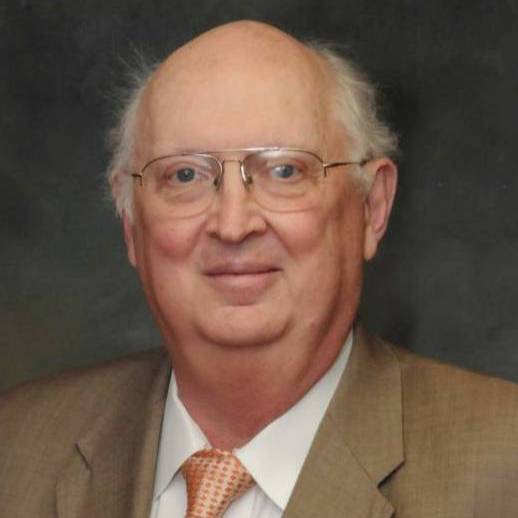 Duane D. Miller, PhD
Duane D. Miller, PhD
Professor Emeritus
Department of Pharmaceutical Sciences
dmiller@uthsc.edu
A Professor Emeritus at the College of Pharmacy, Dr. Miller's research interests include the design, synthesis and characterization of new drug molecules for mechanism based structure-activity relationships is the primary focus of our laboratory. One of the important areas of research is studying new drugs affecting the central and peripheral nervous systems. Our laboratory is very interested in the design of drugs that are used to treat asthma, emphysema and obesity. Other areas of keen interest are drugs used to treat and diagnose prostate cancer and diabetic complications.
Bob M. Moore II, PhD
 Bob M. Moore II, PhD
Bob M. Moore II, PhD
Professor
Department of Pharmaceutical Sciences
bmoore@uthsc.edu
Dr. Moore’s current research focuses on the development of novel agonists and inverse agonists of the cannabinoid receptor 2. Molecular modeling, synthetic chemistry, and pharmacological evaluation of new compounds from the core of his research group. In collaboration with experts in various human disease states, compounds developed in his lab are being tested for in vivo efficacy in protecting against acute kidney injury, neuroinflammation, colitis, and host graft responses. Additionally, his group collaborates with genetics researchers to study signaling pathways of the cannabinoid receptor 1 in the central nervous system.
Accepting Graduate Students
Sudeshna Roy, PhD
 Sudeshna Roy, PhD
Sudeshna Roy, PhD
Associate Professor
Department of Pharmaceutical Sciences
roy@uthsc.edu
SudeshnaRoy, Ph.D., and her research group, the Roy Laboratory, joined the Department of Pharmaceutical Sciences in Memphis on August 1st. Dr. Roy and her team investigate critical gaps in research to solve major human health problems. She comes to UTHSC from the University of Mississippi (Ole Miss) School of Pharmacy, where she served as a tenured Associate Professor.
Through a multipronged strategy, Dr. Roy and the researchers in her lab principally pursue the discovery of new small molecule inhibitors of Mycobacterium tuberculosis (Mtb), with a focus on drug-resistant strains. Among other projects, the lab also explores development of new synthetic strategies to construct medically relevant fluorinated heterocycles. The research programs on tuberculosis and fluorinated heterocycles are supported through NIH grants.
Accepting Graduate Students
 Wei Li, PhD
Wei Li, PhD
UTHSC Distinguished Professor
Department of Pharmaceutical Sciences
wli@uthsc.edu
Dr. Li is currently a UTHSC Distinguished Professor in the Department of Pharmaceutical Sciences at the University of Tennessee Health Science Center (UTHSC), and the Director of UTHSC College of Pharmacy Drug Discovery Center. He is also the Founder and CSO of SEAK Therapeutics LLC, a UTHSC spin-off startup company focusing on developing small molecule therapeutic agents originally invented in his lab. His research focus is medicinal chemistry and small molecule drug discovery.
More on Dr. Li’s research can be found on his lab webpage.
Accepting Graduate Students
Chao-Yie Yang, PhD
 Chao-Yie Yang, PhD
Chao-Yie Yang, PhD
Associate Professor
Department of Pharmaceutical Sciences
cyang26@uthsc.edu
The Yang lab is dedicated to discovering and developing chemical probes and targeted therapies for the treatment of cancers and immune-mediated diseases. In pursuit of this goal, the lab employs a combination of computational modeling techniques such as docking, molecular dynamics simulations, and bioinformatic analysis, as well as medicinal chemistry, biochemical/biophysical assays, and cell-based assays to develop compounds and study their effects on cellular pathways. The lab collaborates closely with other labs to carry out in vivo disease model studies. The lab primarily focuses on hematological malignancies. However, we also study solid tumors, including breast, ovarian, and pancreatic cancer, through collaborations. The lab is particularly interested in developing chemical probes and compounds to target and interrogate RNA splicing and cell cycle progression in cancers.
Not Accepting Graduate Students
Pharmacometrics
Research in this area includes the quantitative assessment of drug disposition (pharmacokinetics), effects (pharmacodynamics) using mathematical models based on biology, physiology, pharmacology and different disease states.
 Bernd Meibohm, PhD, FCP, FAAPS
Bernd Meibohm, PhD, FCP, FAAPS
Professor and Chair
Department of Pharmaceutical Sciences
bmeibohm@uthsc.edu
Dr. Bernd Meibohm’s research is focused on investigating the pharmacokinetics (PK) and pharmacodynamics (PD) of drugs with special emphasis on PK/PD-correlations. The goal of the research in Dr. Meibohm’s lab is to contribute to optimizing dosing regimens for increased efficacy and reduced toxicity and to modulate pharmacotherapy according to the needs of the individual patient. PK/PD modeling bridges the gap between dynamic dose-concentration relationships and static concentration-effect relationships of drugs. Combining information provided by pharmacokinetics and pharmacodynamics facilitates the description and prediction of the time course of drug effects that result from a certain dosing regimen.
Dr. Meibohm’s scientific interests include bacterial and viral infectious diseases, pediatric pharmacotherapy and the application of quantitative modeling and simulation techniques in preclinical and clinical drug development, with specific focus on therapeutic proteins.
Accepting Graduate Students
Drug Delivery and Targeting
Research in this area includes the design and evaluation of novel and translational drug delivery systems which can lead to targeted delivery systems to different organs in the body, to enhance the in vivo stability and permeability of novel molecules with reduced toxicity.
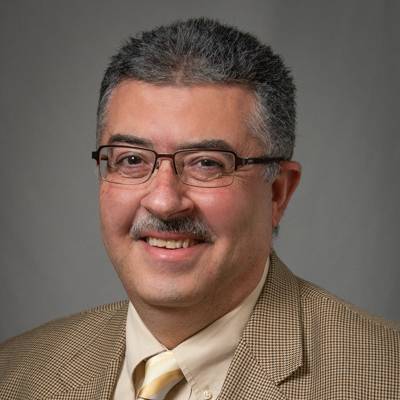 Hassan Almoazen, PhD
Hassan Almoazen, PhD
Associate Professor
Department of Pharmaceutical Sciences
halmoaze@uthsc.edu
Dr. Almoazen is an expert in pediatric drug delivery systems. His laboratory is focused on training graduate students and post- doctorate fellows on translational and novel drug delivery systems. Trainees have designed microemulsion to deliver the iodide ion through the transdermal route to pediatrics with short bowel syndrome, prepared oral minitablets of solid dispersions to enhance the bioavailability of poorly soluble drugs, designed special sublingual films of poorly impermeable small molecules and developed two layers double compressed tablet to prevent teeth erosion in children and adults.
Accepting Graduate Students
Santosh Kumar, PhD
 Santosh Kumar, PhD
Santosh Kumar, PhD
Professor
Department of Pharmaceutical Sciences
ksantosh@uthsc.edu
Dr. Santosh Kumar is a researcher who focuses on neuroHIV/neuroAIDS and its comorbidities. These include substance use disorders (SUD), neurological diseases, and coinfections. Although HIV is manageable, there is a rapid increase in complications related to neuroHIV-associated comorbidities, especially in aging populations. The high prevalence of neuroHIV/neuroAIDS is due to the viral reservoirs in brain cells and suboptimal therapeutic concentrations of antiretroviral drugs in the brain. This leads to persistent HIV replication in brain reservoirs, causing neuronal damage and HIV-associated neurocognitive disorders (HAND). Kumar's goal is to understand the mechanisms of HIV and its related comorbidities to develop a novel treatment strategy for HIV-associated comorbidities. He is also working on discovering biosignatures that can predict HIV-associated comorbidities and aid in disease prediction. His laboratory is utilizing synthetic lipids-based, extracellular vesicles (EVs), and EV-lipids based hybrid nanoparticles system along with intranasal delivery methods to develop drug delivery approaches to treat NeuroHIV, HAND, and HIV-associated neuronal diseases.
Not Accepting Graduate Students
Chalet Tan, PhD
 Chalet Tan, PhD
Chalet Tan, PhD
Professor
Department of Pharmaceutical Sciences
ctan5@uthsc.edu
The research in our laboratory covers three areas: drug delivery, pharmacokinetics, and immunotherapy. We are particularly interested in developing inhalable liposomes for systemic delivery of biologics, for the treatment of infectious diseases and cancers.
Not Accepting Graduate Students
Clinical Pharmacy
Clinical pharmacy practice embraces the philosophy of pharmacists providing direct patient care while utilizing specialized therapeutic knowledge, experience, and judgment to ensure optimal patient outcomes.
Roland Dickerson, PharmD
 Roland Dickerson, PharmD, BCNSP, FCCP, FASHP, FCCM, FASPEN
Roland Dickerson, PharmD, BCNSP, FCCP, FASHP, FCCM, FASPEN
Professor
Department of Clinical Pharmacy and Translational Science
rdickerson@uthsc.edu
Dr. Roland Dickerson has been actively engaged in clinical practice, research, and education for over 40 years. He has over 190 publications of which many have led to improvements in the clinical care of patients who require parenteral or enteral nutrition therapy. These efforts have included the development and validation of methods for safe and effective glycemic control with insulin therapy, electrolyte dosing, intravenous fluid therapy, investigation of energy and protein requirements for various disease conditions, improvement in enteral nutrition delivery, avoidance of overfeeding complications, and resolution of pertinent drug-nutrient interactions.
 Leslie A Hamilton, PharmD, FCCP, FCCM, FNCS, BCPS, BCCCP
Leslie A Hamilton, PharmD, FCCP, FCCM, FNCS, BCPS, BCCCP
Professor
Department of Clinical Pharmacy and Translational Science
Leslie A. Hamilton, Professor of Clinical Pharmacy and Translational Science at the University of Tennessee Health Science Center College of Pharmacy, practices neurology and critical care at UT Medical Center. She has previously worked in pulmonology and critical care and served as a faculty member at Auburn University for three years. Her interests lie in critical care, neurology, nutrition, and infectious disease. Dr. Hamilton's research and scholarship interests focus on the following areas: critical care, neurology, fluid and electrolytes, and student and resident education.
 Joanna Q Hudson, PharmD, BCPS, FASN, FCCP
Joanna Q Hudson, PharmD, BCPS, FASN, FCCP
Professor
Department of Clinical Pharmacy and Translational Science
jhudson@uthsc.edu
Dr Hudson’s research interests include drug disposition in the chronic kidney disease population and during renal replacement therapy and management of secondary complications in patients with end-stage renal disease.
 James S Wheeler, PharmD
James S Wheeler, PharmD
Associate Professor, Associate Dean (Knoxville Campus)
Department of Clinical Pharmacy and Translational Science
jwheele4@uthsc.edu
Dr. James Wheeler’s research interests focus on everyday issues that affect pharmacy practitioners and other healthcare professionals. His research areas include workforce development, medication safety, continuing professional development, and the scholarship of teaching and learning. He is particularly interested in practice models, employment trends, substance abuse and misuse, and medication safety.
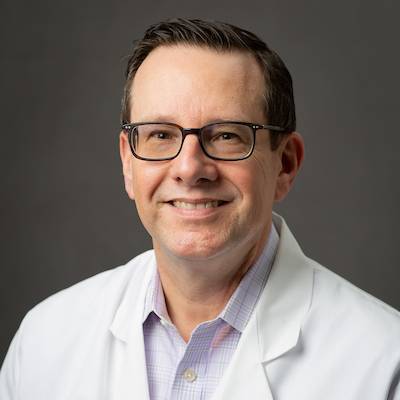 Chris Wood, PharmD, FCCP, FCCM, BCCCP
Chris Wood, PharmD, FCCP, FCCM, BCCCP
Professor
Department of Clinical Pharmacy and Translational Science
cwood@uthsc.edu
Dr. Wood’s research primarily focuses on improving the management of hospital-acquired infections in critically ill trauma patients. Research areas have included the treatment of highly-resistant Gram-negative infections, use of aerosolized antibiotics in ventilator-associated pneumonia (VAP), improving the diagnosis of VAP, the optimal duration of therapy for various infections (VAP, bacteremia, UTI), pharmacokinetics and pulmonary penetration of antibiotics, and genomic risk for VAP. He also occasionally publishes on improving the management of traumatic brain injury and acute spinal cord injury.. He also publishes on other aspects of critical care including traumatic brain injury, spinal cord injury, and anticoagulation.
Translational Science
 Kenneth Hohmeier, PharmD
Kenneth Hohmeier, PharmD
Professor and Vice Chair for Education, Director of Community Affairs
Department of Clinical Pharmacy and Translational Science
khohmeie@uthsc.edu
The Hohmeier lab aims to improve patient access to quality, cost-effective healthcare by advancing community pharmacy practice. Community pharmacists, as the most accessible healthcare professionals, represent a highly trained, clinically minded workforce capable of scaling up high-quality, evidence-based population health solutions cost-effectively. The Hohmeier lab's research has identified that implementation of novel patient care services in the community pharmacy setting can be best facilitated by optimizing pharmacist-extenders' role, such as certified pharmacy technicians, and enhancing electronic communication between pharmacists and other providers. Preliminary findings suggest that integrating a regional health information exchange within community pharmacy workflow can facilitate the development of novel clinical programs and improve the quality and efficiency of the drug utilization review process. Lastly, cost-effective implementation of evidence-based clinical care is possible in the community pharmacy setting due to its consumer-driven nature and extended hours of operation.
Steven C Laizure, PharmD & Robert B Parker, PharmD

Steven C Laizure, PharmD, FCCP
Professor
Department of Clinical Pharmacy and Translational Science

Robert B Parker, PharmD
Professor
Department of Clinical Pharmacy and Translational Science
The Laizure-Parker lab studies the variability in metabolism and disposition of drugs metabolized by human carboxylesterase (CES) enzymes. CES1 and CES2 play an important role in biotransformation of prescribed medications. Inhibition of CES function can affect catalytic activity, thus altering the pharmacokinetics and clinical effects of substrate drugs. Little is known about how drug interactions may affect CES as a target for metabolic inhibition. Understanding how inhibition of CES by drug interactions affects metabolism, disposition, and response to medications hydrolyzed by these enzymes is a major gap in our knowledge of adverse drug events. The lab uses in vitro metabolic studies, in vivo models, human studies, and modeling to address these questions. The lab has identified a number of potent CES inhibitors including alcohol (ethanol), diltiazem, verapamil, aripiprazole, loperamide, and rivastigmine.
Health Outcomes and Policy Research
Health Outcomes and Policy Research focuses on the population-level impact of health policies, health systems, and health interventions on health outcomes, particularly regarding therapeutic outcomes from medication utilization. This interdisciplinary field examines the access, effectiveness, and economics of healthcare interventions and policies. Examples of critical outcomes of our research include access to health disparities, clinical outcomes, and economic outcomes. By examining the interplay between health outcomes and policy research, we guide decision-makers, enhance health outcomes, and optimize resource investment.
 Junling Wang, PhD
Junling Wang, PhD
Professor and Vice Chair for Research
jwang26@uthsc.edu
Dr. Junling Wang has continuously concentrated on the following two research areas: (1) outcomes/economic evaluation of pharmaceutical products and services including medication therapy management; and (2) racial and ethnic differences in the utilization of health services and prescription drugs. Her research has been funded by the National Institutes of Health (NIH)/National Institute on Aging, Pharmacy Quality Alliance, Pharmaceutical Research and Manufacturers of America Foundation, American Association of Colleges of Pharmacy, Pfizer Inc., Bristol-Myers Squibb, Eli Lilly and Company, and the State of Tennessee. Dr. Wang has published over 100 research articles in peer-reviewed journals. Her work has been cited by the federal government as a reason for federal policy reform for the Medicare eligibility criteria for medication therapy management services. She has also received recognition for her research, including the Nobuo Meade International Research Award and an Honorable Mention for Betty J. Cleckley Minority Issues Research Award from the American Public Health Association Aging and Public Health Section.

